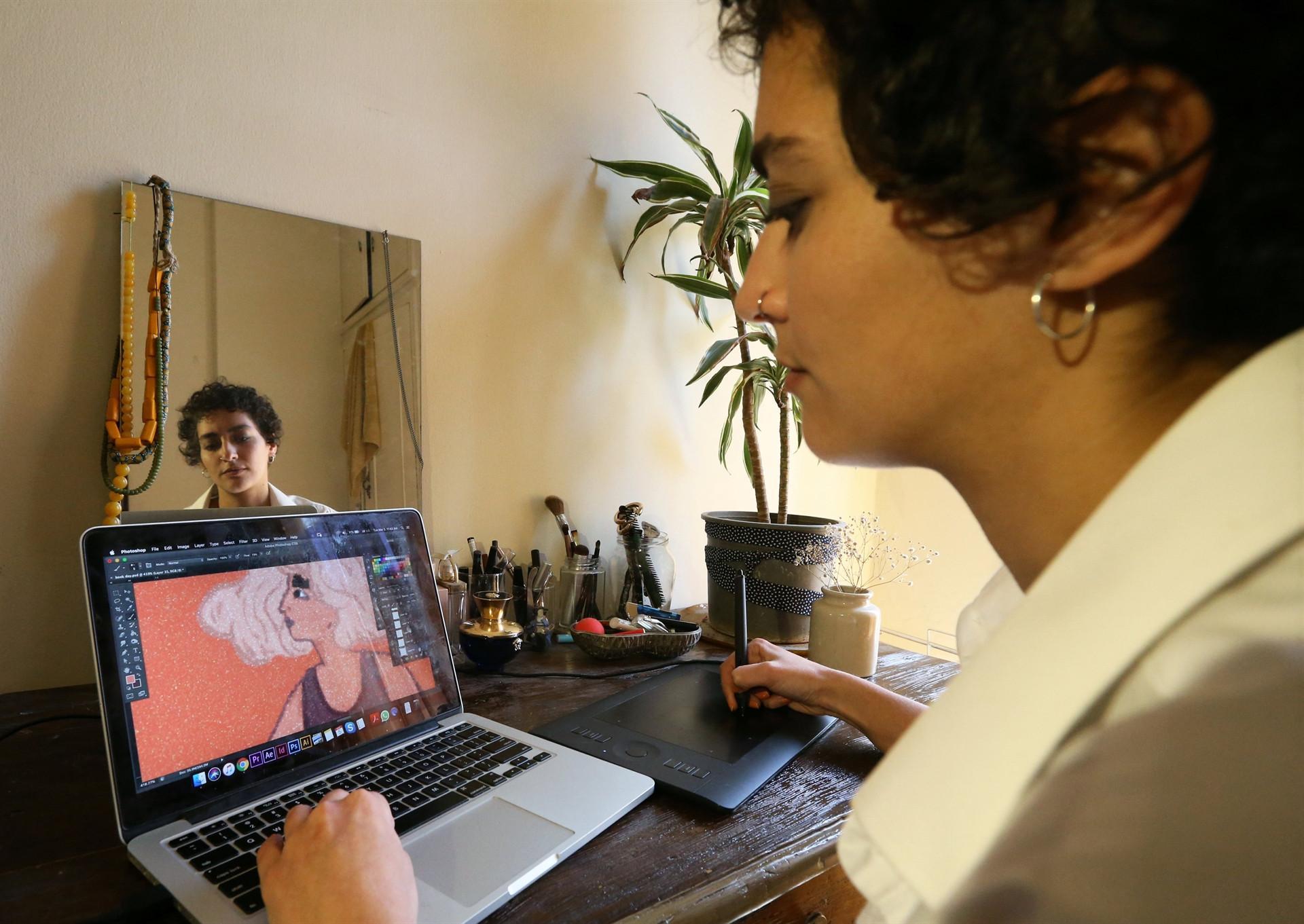
Lebanese artist Christina Atik has produced a series of digital pictures to illustrate sentences commonly used in Arab countries to criticize women with the aim of empowering Arab women.
The project tackles issues of female freedom, beauty and sexuality in societies traditionally dominated by men.
Atik, 27, said she conceived the project last year after her younger sister Maria faced criticism from their mother.
"She has a big nose and my mum always made fun of her saying 'when are you going to do an operation for your nose?' 'your nose is not nice for a girl'," the graphic designer said.
"I decided to do a drawing for my sister to show her that her nose is beautiful and she doesn't have to listen to mum. And this worked, she did not do an operation for her nose."
The picture won praise from local art supporters and quickly turned into a series so far comprising seven illustrations.
Other illustrations read: "It's not nice for a girl to have (body) hair", "It's not nice for a girl to like another girl" or "It's not nice for a girl to live alone". They each comprise a sketch, digitally drawn by Atik, along with a comment in Arabic.
"I think it's very important to sit and talk about such subjects, so maybe we can break them or stop them or have the courage to say 'no, I won't do my nose operation' or 'no, I want to leave the house' or else," Atik said.
The illustrations, shared across the internet, have gathered lots of reactions and shares. They have also increased Atik's followers on one social media platform to 6,000.
"I hadn't at all expected people to share them that much, and women have started to send me things they hear from their families and societies around them. Women from Egypt, Jordan, Saudi Arabia... were touched by the illustrations I did, so that was something really nice," she said.
Atik said she celebrates International Women's Day on March 8 every year by partying with friends.
"I think we have a long way to go in Lebanon and in the whole world [on women's rights] but I think we're getting there, little by little," she said.